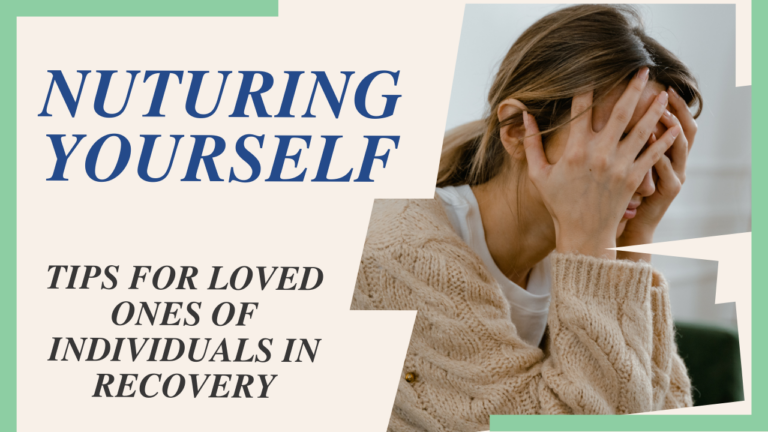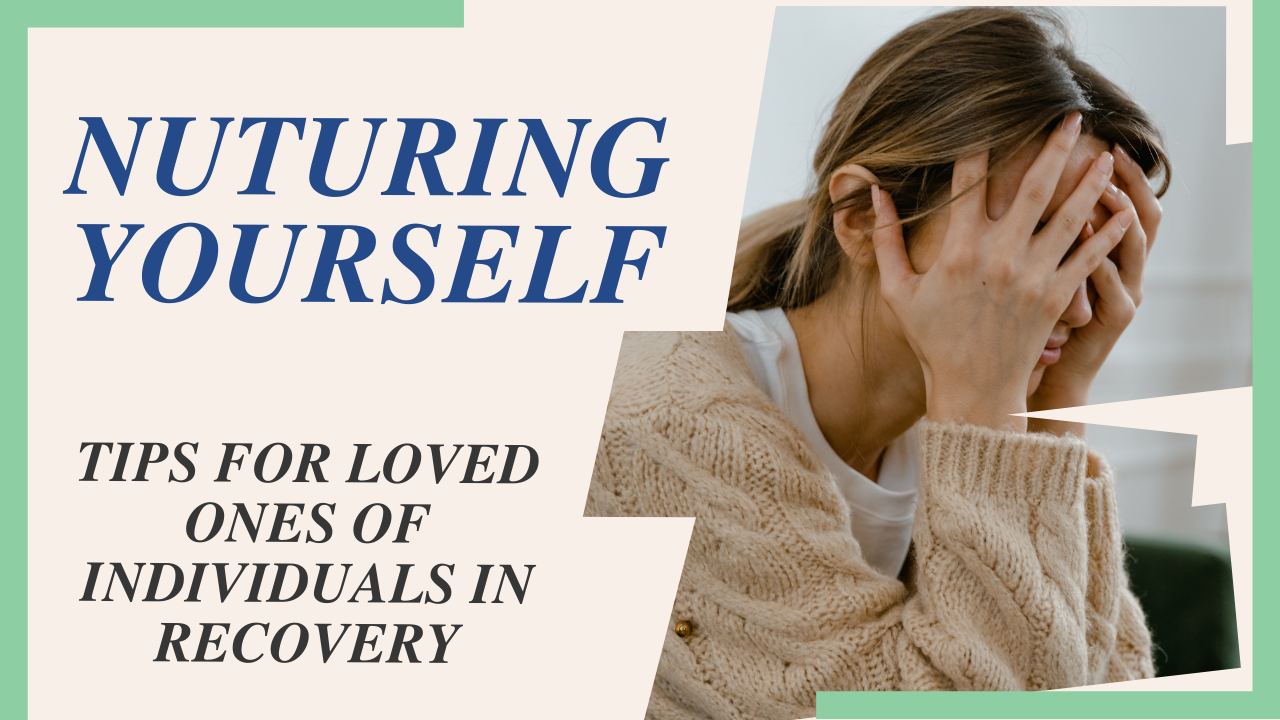
Tips for Loved Ones of Individuals in Recovery
Understanding the Importance of Self-Care:
Starting the journey to support a loved one’s recovery from addiction can be rewarding and challenging. However, as you navigate this path, prioritizing your own well-being is crucial. Self-care isn’t selfish; it’s necessary for offering effective support. In this blog, we’ll explore practical self-care tips tailored for loved ones of individuals in recovery, empowering you to navigate with strength and compassion.
Before diving into specific self-care practices, it’s essential to recognize why self-care matters. Firstly, your well-being directly impacts your ability to provide support and remain emotionally resilient. Additionally, prioritizing self-care equips you to offer sustainable support and maintain healthy boundaries. Consequently, this fosters a positive environment for yourself and your loved one in recovery.
Self-Care Tips for Loved Ones of Those in Recovery.
Embrace Mindfulness
Mindfulness involves being fully present in the moment, without judgment or attachment to thoughts or emotions. Incorporating mindfulness practices into your daily routine can help reduce stress and anxiety, promoting a sense of calm and balance amidst the challenges of supporting a loved one in recovery.
Now, let’s delve into some specific mindfulness techniques you can try.
Practice Deep Breathing Exercises
Deep breathing exercises are a simple yet effective way to reduce stress and promote relaxation. Dedicate a few moments each day to practice deep breathing First, focusing on inhaling deeply through your nose, holding the breath briefly, and exhaling slowly through your mouth. This practice can help calm your nervous system and center your mind.
In addition to mindfulness practices, it’s essential to prioritize activities that bring you joy and fulfillment.
Pursue Your Passions
Make time for activities that nourish your soul and bring you joy. Whether it’s pursuing a hobby, spending time in nature, or engaging in creative endeavors. Most importantly, prioritize your passion to allow yourself to recharge and reconnect with yourself outside of your role as caregiver.
Next, it is crucial to create some healthy space.
Establish Boundaries
Setting clear boundaries is essential for maintaining your emotional well-being and preventing burnout. Remember, communicate your needs and limitations openly with you loved one in recovery. Also, don’t hesitate to say no when necessary. Setting boundaries is not selfish; it is an act of self-preservation. As a result, that preservation allows you to offer support more effectively.
Additionally, seeking support from others who understand your experience is vital.
Connect with Peers
Connecting with people in your shoes through support groups or online forums can offer a sense of community. Remember, you are not in this alone. These groups offer support, community, validation, and understanding. Additionally, sharing your experiences with others who have walked a similar path can be beneficial to everyone involved. In short, the support of those who understand your feelings and situation is paramount. Thankfully, there are several different support groups available like Al-Anon, Family Restored, and Learn2Cope.
Finally, remember to be gentle with yourself and practice self-compassion. With others, you can navigate the ups and downs of supporting a loved on in recovery.
You Are Not Alone
In conclusion, supporting a loved one through their journey of recovery from addiction is both noble and challenging. However, it is essential to prioritize your own well-being along the way. Remember, there are others who are dealing with this too, and they are here as support. By incorporating self-care practices into your daily life, you can maintain your resilience and capacity to offer meaningful support. Again, self-care is not selfish; it is an act of love and compassion for both yourself and your loved on in recovery.
At Waterside Recovery Centers we pride ourselves on providing the top addiction treatment in Massachusetts. With a range of evidence-based, client-focused and individualized treatment offerings, we are able to provide the ideal support for those seeking recovery from substance addiction. Please feel free to reach out to our help line at anytime.
(866)671-8620




